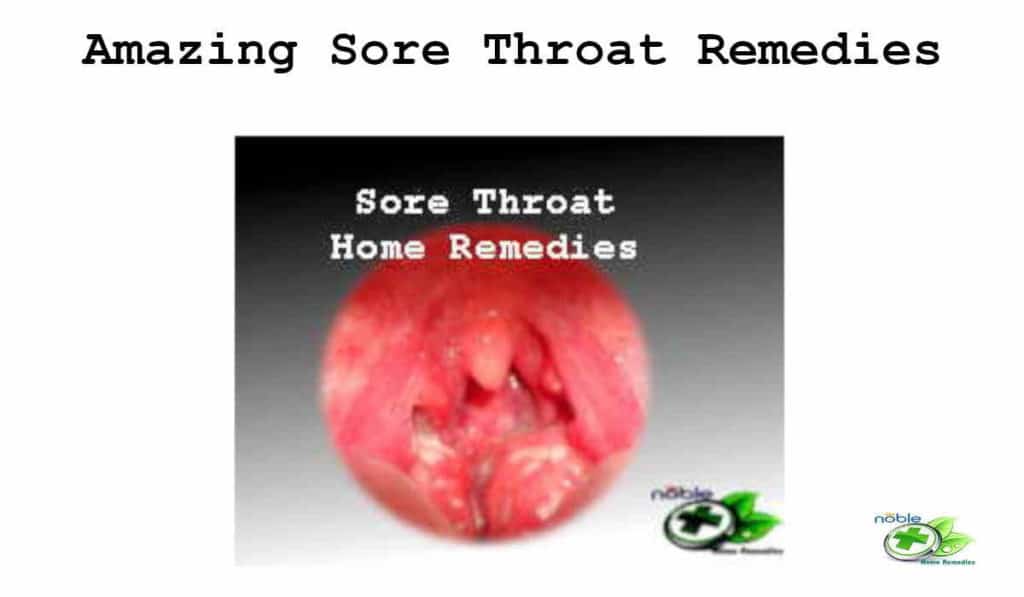Witch Hazel for Boils 3 Methods: A Boil-Free, Beautiful You!
Boils, those painful, red, and often unsightly skin abscesses, can be a real nuisance. They appear seemingly out of nowhere, causing discomfort and sometimes even severe pain. For many, the search for a reliable remedy becomes a quest for relief, and that’s where the magic of witch hazel comes into play.

In this article, we delve into the world of “Witch Hazel for Boils: Experience a Boil-Free, Beautiful You!” Boils are not just a physical inconvenience; they can take a toll on your self-esteem and confidence. Whether you’ve had a boil before or are currently dealing with one, you understand the urgency of finding a solution.
Our goal here is to explore witch hazel and its potential to offer a helping hand in your battle against boils. We’ll venture into the realm of natural remedies, revealing the effectiveness of witch hazel in not only treating but also preventing these bothersome boils. Say goodbye to the discomfort and embarrassment, and say hello to a healthier, more beautiful you with the power of witch hazel. Let’s dive in!
What Are Boils?
Boils, also known as furuncles, are painful, swollen, and sometimes even pus-filled bumps that can form on your skin. They’re the result of a skin infection, typically caused by the bacterium Staphylococcus aureus. This bacterium finds its way into your hair follicles or oil glands, leading to an inflammatory response by your body.
Boils most often develop on the face, neck, armpits, buttocks, and thighs. These are areas prone to sweating, friction, and blockages that can lead to infection
Understanding the Causes: Boils can occur for various reasons, but the most common culprits include:
- Bacterial Infection: As mentioned, Staphylococcus aureus is often the primary bacteria responsible for boils. It thrives on the skin’s surface and can penetrate hair follicles or sweat glands, triggering the infection.
- Weakened Immune System: A compromised immune system, due to factors like diabetes or certain medications, can make you more susceptible to boils.
- Poor Hygiene: Inadequate cleansing of the skin can allow bacteria to accumulate, increasing the likelihood of infection.
Typical Boil Symptoms: Boils make their presence known with a set of unmistakable signs:
- Redness: The affected area becomes red and inflamed, signaling the body’s response to infection.
- Swelling: As the infection progresses, the area swells, often causing discomfort and pain.
- Pain: Boils can be quite painful, especially when they press against nerves or are located in sensitive areas like the face or groin.
- Pus Formation: In many cases, a white or yellowish head filled with pus develops at the center of the boil.
- Fever: If the infection spreads or becomes more severe, you may experience a fever, along with general malaise.
Early Treatment and Prevention: The good news is that prompt treatment and preventive measures can help mitigate the impact of boils on us.
- Treatment: Early intervention, such as applying warm compresses, may help the boil drain and heal faster. In severe cases, a healthcare professional may need to drain it surgically or prescribe antibiotics.
- Prevention: Maintaining good hygiene and avoiding practices that could introduce bacteria to your skin can significantly reduce your risk of developing boils. If you’re prone to recurrent boils, discussing preventive measures with a healthcare provider is advisable.
The Magic of Witch Hazel

When it comes to natural remedies for skin issues, witch hazel is considered the best. It is a powerful and versatile elixir that can address various skin concerns. Its use goes back a long way, and it is highly effective. Let’s explore the magic of witch hazel and why it is truly remarkable in the world of skincare.
Versatile Natural Remedy
Witch hazel (Hamamelis virginiana) is a deciduous shrub native to North America. Its extract, derived from the bark and leaves, has been cherished for centuries for its multifaceted healing properties. While its uses are extensive, we’re particularly interested in its remarkable contributions to skincare.
Key Properties
Witch hazel boasts a unique combination of properties that make it an exceptional addition to your skincare regimen:
- Astringent: Witch hazel is a natural astringent, which means it can tighten and tone the skin. When applied, it constricts the skin’s tissues, helping to reduce inflammation and minimize pores. This astringent quality is particularly beneficial for those dealing with boils, as it can aid in soothing and calming the affected area.
- Anti-Inflammatory: Inflammation is a common characteristic of skin conditions, including boils. Witch hazel’s anti-inflammatory properties help quell redness, swelling, and discomfort. By reducing inflammation, it can alleviate some of the pain associated with boils.
- Antimicrobial: Witch hazel contains compounds that possess antimicrobial properties, making it effective in combating bacteria on the skin’s surface. For boils, which often result from bacterial infection, witch hazel can play a role in keeping the area clean and less susceptible to further infection.
Promoting Healthier Skin
Beyond its specific benefits for boils, witch hazel contributes to overall skin health. Its regular use can help maintain balanced oil production, making it suitable for various skin types. Additionally, its gentle nature makes it an excellent choice for those with sensitive skin, providing a soothing and refreshing sensation. Witch Hazel is also used as a home remedy for Vaginal Yeast Infection.
Let’s explore the potential of witch hazel in treating boils. It’s not just about treating the symptoms but also about improving your skin’s health. We’ll see how witch hazel can help prevent and treat boils, so you can have radiant and beautiful skin.
Witch Hazel for Boils: How It Works

Now that we’ve unveiled the magical qualities of witch hazel, it’s time to delve into how this natural wonder operates in the realm of boils. The effectiveness of witch hazel for skin care in addressing boils lies in its unique and multifaceted approach to skin care.
Cleansing and Purifying: Witch hazel, with its astringent and antimicrobial properties, acts as a gentle but effective cleanser for the affected area. When applied, it helps rid the skin of impurities and bacteria, a crucial step in treating and preventing boils. By keeping the area clean, witch hazel creates an environment less conducive to further infection, giving your body a fighting chance to heal itself.
Reducing Inflammation: One of the primary sources of discomfort with boils is the inflammation they provoke. This is where witch hazel’s anti-inflammatory prowess shines. By tempering the body’s inflammatory response, it can significantly diminish the redness, swelling, and throbbing associated with boils. This soothing effect can be a source of great relief as you navigate the healing process.
Relieving Pain: Boils, especially when they’re large or in sensitive areas, can be downright painful. Witch hazel offers a natural solution to alleviate this discomfort. Its gentle yet potent nature can help numb the area slightly, providing relief from the sharp or persistent pain often associated with boils.
Using Witch Hazel for Boils
Here we will discuss three methods of using witch hazel to effectively address boils.
Method 1: Witch Hazel Soaked Cotton Ball
- Step 1: Start by thoroughly washing your hands to ensure cleanliness.
- Step 2: Pour a small amount of pure witch hazel into a clean bowl or cup.
- Step 3: Dip a clean cotton ball or pad into the witch hazel, ensuring it’s saturated but not dripping.
- Step 4: Gently apply the soaked cotton ball directly to the boil. Hold it in place for a few minutes.
- Step 5: Repeat this process a few times a day to cleanse the boil and reduce inflammation.
Method 2: Witch Hazel Compress
- Step 1: Begin by washing your hands and gathering clean materials.
- Step 2: In a clean bowl, mix equal parts pure witch hazel and lukewarm water.
- Step 3: Soak a clean cloth or gauze in the witch hazel solution until it’s saturated but not dripping.
- Step 4: Apply the soaked cloth to the boil and gently press it against the affected area.
- Step 5: Leave the compress in place for about 20 minutes.
- Step 6: Repeat this process several times a day to help cleanse the boil and alleviate discomfort.
Method 3: Witch Hazel Spray
- Step 1: Purchase a high-quality, pure witch hazel spray (ensure it contains no additives).
- Step 2: Thoroughly cleanse your hands.
- Step 3: Hold the spray bottle about 6-8 inches away from the affected area and spritz it lightly.
- Step 4: Allow the witch hazel to air dry.
- Step 5: Repeat this process multiple times throughout the day to cleanse and soothe the boil.
When using witch hazel for boils, consistency is key. Regular and gentle application can help alleviate discomfort, reduce inflammation, and promote the healing process.
Preventing Boils with Witch Hazel
Witch hazel is not only effective in treating boils, but it can also prevent their recurrence. It can be used proactively to maintain a blemish-free complexion. By using witch hazel, you can ensure that your skin remains healthy and beautiful.
Witch Hazel as a Preventive Measure
One of the key factors in preventing boils is maintaining healthy skin. Witch hazel, with its astringent and antimicrobial properties, is an excellent addition to your skincare routine. Here’s how you can use it as a preventive measure:
- Daily Cleansing: Incorporate witch hazel into your daily skincare routine. After cleansing your face, apply a small amount of pure witch hazel to a cotton pad and gently swipe it over your skin. This helps remove impurities and bacteria that can contribute to boil development.
- Toner Replacement: Witch hazel can replace your regular toner. Its astringent properties help tighten your pores and balance oil production, reducing the likelihood of clogged pores and subsequent boils.
- Post-Shave Care: If you’re prone to boils after shaving, consider using witch hazel as an aftershave. It soothes the skin, prevents inflammation, and disinfects minor cuts or nicks.
- Spot Treatment: If you notice any early signs of a boil, such as redness or tenderness, apply witch hazel to the area to prevent the infection from progressing.
To make witch hazel an effective part of your skincare routine, here are some tips:
- Ensure you’re using pure witch hazel without additives or fragrances to reap its full benefits.
- Perform a patch test before applying it to your face or any sensitive areas to check for allergies or sensitivities.
- Use witch hazel in moderation, as excessive use may lead to dryness or irritation.
Safety and Considerations

When using witch hazel to treat boils and improve skin appearance, it’s crucial to prioritize safety measures to guarantee the best results without any risks.
Potential Allergies or Sensitivities: While witch hazel is generally considered safe for topical use, it’s crucial to be aware that individuals can have varying sensitivities to natural substances. Some people may experience mild skin irritation or allergies when applying witch hazel. If you have a known sensitivity to plants in the Hamamelis family or have experienced skin reactions to similar products in the past, exercise caution when using witch hazel.
Patch Testing: To determine if witch hazel is suitable for your skin, it’s advisable to perform a patch test before applying it to larger areas. Here’s how to do it:
- Choose a small, inconspicuous area on your skin, such as the inside of your wrist or behind your ear.
- Apply a small amount of pure witch hazel to the chosen area.
- Wait 24-48 hours and monitor the site for any signs of redness, itching, swelling, or irritation. If you experience any adverse reactions during this time, it’s best to avoid using witch hazel on your skin.
Consulting a Healthcare Professional: If you have pre-existing skin conditions, or allergies, or if you’re unsure about using witch hazel, it’s wise to consult a healthcare professional or dermatologist before incorporating it into your skincare routine. They can provide personalized guidance and ensure that witch hazel is a safe and suitable option for you.
Additionally, if you experience severe or persistent boils, it’s essential to seek medical attention promptly. While witch hazel can be a valuable complement to your skincare regimen, certain cases of boils may require more intensive treatment, including drainage or antibiotic therapy.
There are several natural remedies to effectively treat boils. You can choose the one that suits you best and is readily available. Here are some natural remedies for boils like witch hazel.
- Epsom salt for boils
- Tea tree oil for boils
- Apple cider vinegar for boil
- Garlic for boils
- Castor Oil for Boils
- Neem Oil for Boils
- Onion Poultice for Boils
- Baking Soda for Boils
Takeaway
Let’s recap the key takeaways and the path forward to achieving a complexion that radiates confidence.
Witch Hazel’s Effectiveness: Witch hazel isn’t just a skincare remedy; it’s a holistic approach to addressing boils and promoting healthy skin. Its specific mechanisms, including cleansing, inflammation reduction, and pain relief, make it a valuable addition to your boil treatment arsenal. Moreover, it can be used proactively to prevent boils by maintaining skin health and balance.
The Invitation to Explore: We encourage you to explore the benefits of witch hazel for yourself. Whether you’re dealing with an existing boil, seeking a proactive preventive measure, or aiming to enhance your overall skin health, witch hazel has something to offer. Remember to choose pure witch hazel without added chemicals or fragrances to reap its full benefits.
A Boil-Free, Beautiful Complexion: With witch hazel as your trusted companion, you can tackle boils with confidence, alleviate discomfort, and nurture healthier, radiant skin.
Source:
Noble Home Remedies adheres to rigorous sourcing standards, drawing information from peer-reviewed studies, reputable academic research institutions, and esteemed medical journals and associations. We prioritize using high-quality, trustworthy sources to maintain the accuracy and integrity of our content. You can learn more about how we ensure our content is accurate and current by reading our editorial policy.
- Use Witch Hazel to Treat Stubborn Acne and More by Dreamworks Medical Aesthetics Clinic
- Herbal Treatment for Dermatologic Disorders by National Library of Medicine
- The Wonders of Witch Hazel by Haverford College
- Witch Hazel For Skin Conditions by Weil
Trust in your purchase:
Every product featured on our site has been carefully researched and selected based on quality, customer ratings, and positive reviews to ensure you receive excellent value for your money.
Please note:
This post contains affiliate links. If you make a purchase through these links, we may earn a small commission at no additional cost to you. This helps support our site and allows us to continue bringing you valuable content. Thank you!
Thank you for your precious time spent with NobleHomeRemedies.
You may also like:
12 Sore Throat Home Remedies and for Kids
12 Sore Throat Home Remedies and for Kids – Quick Relief If you are experiencing…
Home remedies to reduce body heat
Home remedies to reduce body heat: Noble Home Remedies How to reduce body heat is…
Epsom Salt Stress Relief
Epsom Salt Stress Relief: Guide to Instant Calm in 5 Steps Stress is an unavoidable…
Medicine Ball Tea
Medicine Ball Tea: Ultimate Sore Throat & Cold Relief Remedy If you have ever felt…
How to Pop a Boil With No Head
How to Pop a Boil with No Head: Fast and Effective Remedies Boils can be…
Home Remedies for Stomach Acidity
10 Best Home Remedies for Stomach Acidity – Treat Naturally Are you suffering from stomach…






